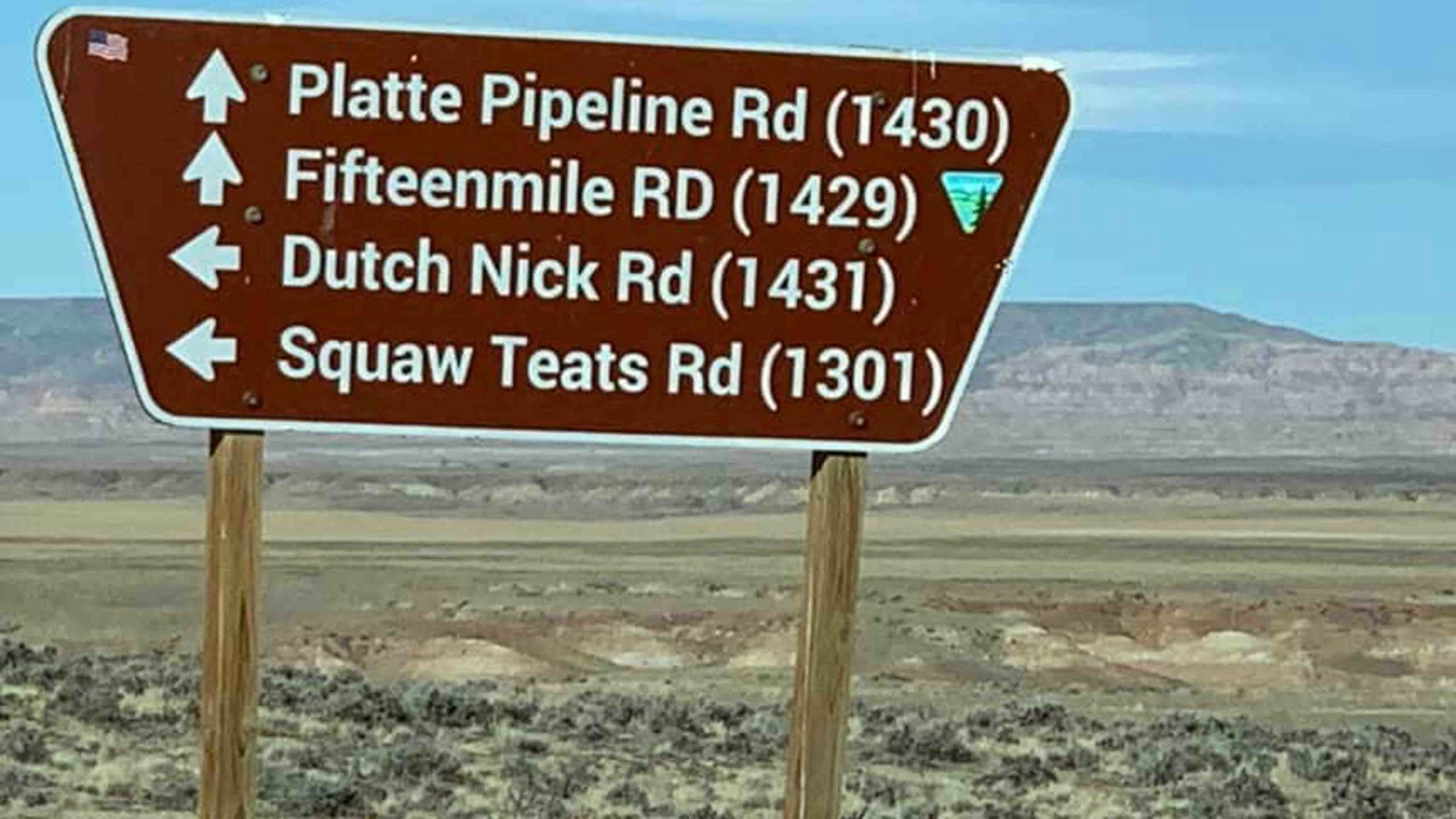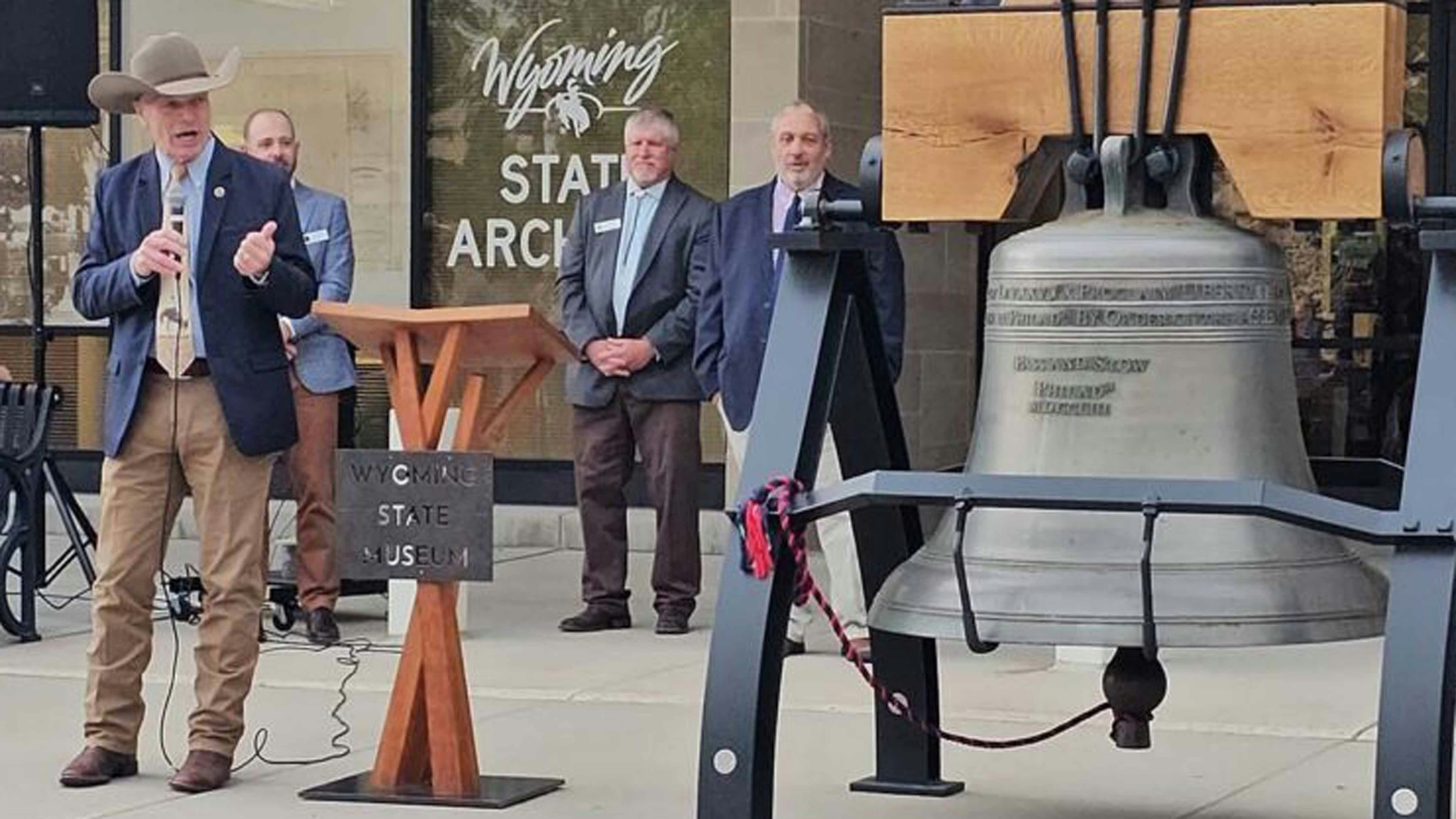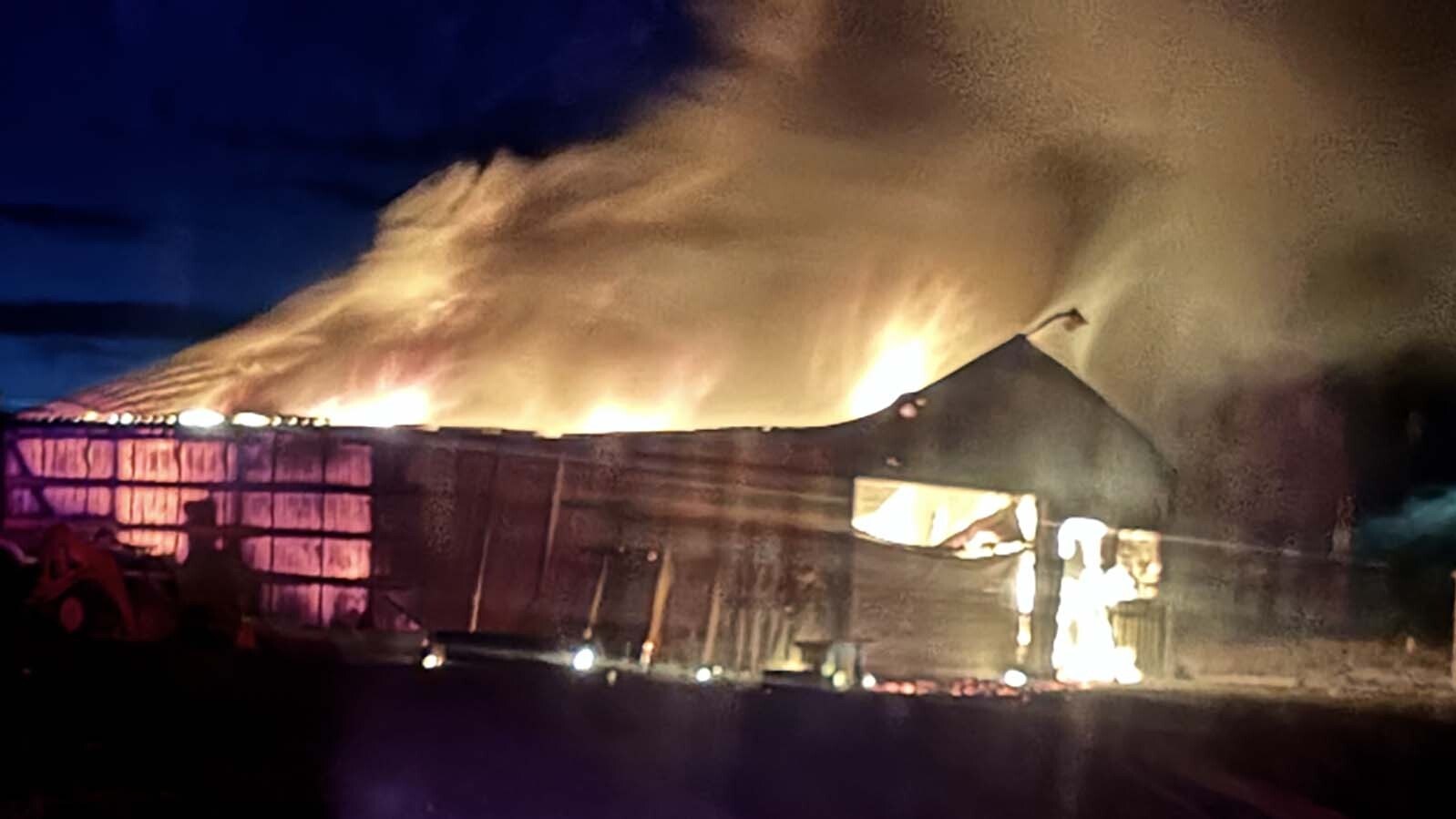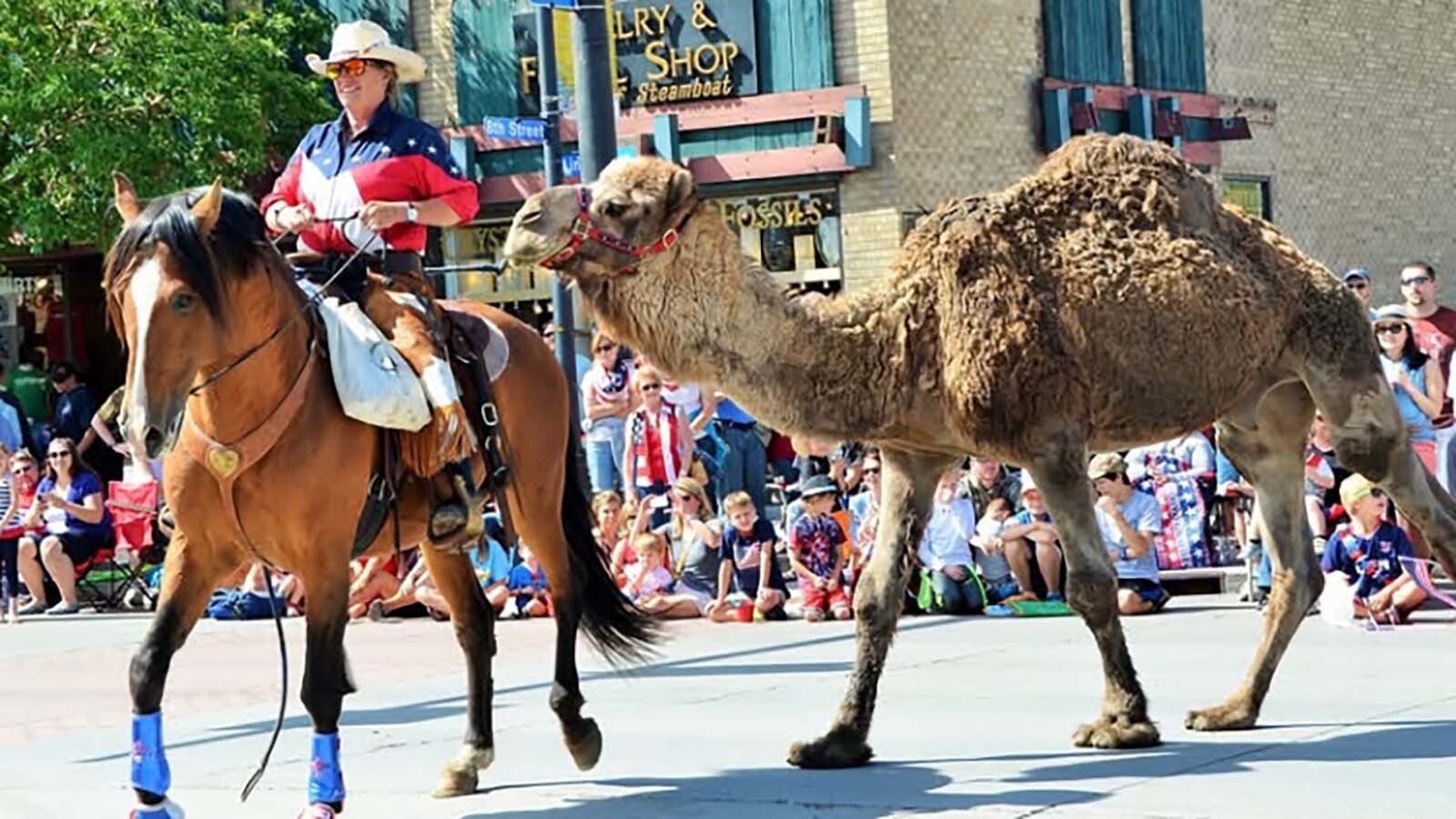By CJ Baker, Powell Tribune
A state board has again postponed a decision on whether to recommend the renaming of “Squaw Teats,” a pair of peaks in southeastern Park County. However, the Biden administration is moving forward with plans to pick a new name for that location and more than 650 other place names across the United States that contain the word “squaw.”
In an order issued Nov. 19, U.S. Secretary of the Interior Deb Haaland declared the word to be a derogatory term that should be removed from federal usage.
“Racist terms have no place in our vernacular or on our federal lands,” Haaland said in a statement. “Our nation’s lands and waters should be places to celebrate the outdoors and our shared cultural heritage — not to perpetuate the legacies of oppression.”
The secretary wants new names in place by the early fall of 2022, following months of input from the public and tribal governments. Haaland said her actions would “accelerate an important process to reconcile derogatory place names and mark a significant step in honoring the ancestors who have stewarded our lands since time immemorial.”
The move is not unprecedented, as the federal government previously banned the N-word from all place names in 1963 and an offensive abbreviation of the word Japanese in 1974.
“The time has come to recognize that the term ‘squaw’ is no less derogatory than others which have been identified and should also be erased from the National landscape and forever replaced,” Haaland’s secretarial order says.
Concern has been raised about the word for decades; the department noted that the states of Montana, Oregon, Maine and Minnesota have already banned the word from their geographic features.
Local Debate
Wyoming has also been debating what to do with the term. Over the past year and a half, the Wyoming Board on Geographic Names has been considering whether to recommend changing the name of Squaw Teats, located about 15 miles east of Meeteetse on Bureau of Land Management property. Powell resident Tyler Kerr brought the name to the board’s attention in June 2020, saying the current moniker is “racially charged (and arguably misogynistic).” He suggested a new name of Crow Woman Buttes.
At a meeting in May, the Wyoming board heard from state Rep. Andi LaBeau, D-Ethete (formerly known as Andi Clifford), and her sister, Crystal C’Bearing of the Northern Arapaho Tribal Historic Preservation Office. They both agreed Squaw Teats should be renamed and LaBeau said she planned to introduce legislation to eventually erase the word squaw from Wyoming maps.
The board didn’t make a recommendation on the proposed name change in May. Members requested more information from LaBeau and C’Bearing about the history of the word — as there are differing opinions about its origins — and indicated they hoped to hear the thoughts of tribal governments and the BLM. However, when the board convened for its next meeting this month, it had received none of that information or recommendations.
“I don’t have a lot of updates,” Executive Director Shelley Messer told the board.
After a brief debate, the advisory panel voted 6-5 to again table its recommendation until May 2022. In opposing a delay, member RJ Pieper expressed concern that, “it’s just another six months and another six months that we’re dealing with this, five years down the road.”
However, board chair Herb Stoughton — who cast the tie-breaking vote in favor of tabling the proposal — said he wanted to give LaBeau and C’Bearing more time to provide input. He added that, “we’re going to make sure that, no matter what happens, … at the May meeting of 2022, we shall make a recommendation to the national board.”
Differing Opinions
LaBeau didn’t attend the meeting, but in a Nov. 22 post on her official Facebook page, the state representative voiced her support for Haaland’s order.
“I stand behind the removal of ‘squaw’ in any place name, doesn’t matter how many years or if it was meant in a ‘good way’ to honor Indigenous women of the past or quite frankly history in general,” LaBeau wrote. “That word is offensive, period. Words matter.”
Stoughton also signalled his support for renaming Squaw Teats earlier this year, pledging to aid LaBeau’s effort to remove the word squaw from all of Wyoming’s place names; Pieper also said he supports changing the name of Squaw Teats.
However, the board was not unanimous, with Vice Chairman Jack Studley saying this month that he’ll be voting against the proposal.
Park County commissioners unanimously voted to support the current name in August 2020, writing that “the history and heritage of Park County is important and must remain the same today and tomorrow.”
The state board also received a pair of emails opposing a change.
“Do not give into the cancel culture nonsense. The name Squaw Teats is not offensive,” wrote Brandon Harvey. “Do something useful with your job instead of wasting time and money on non issues.”
Bob and Linda Graff of Powell also opposed the change, with Bob Graff speaking at this month’s meeting. He suggested the board “just leave it alone” and took issue with the suggested new name of Crow Woman Buttes. Graff questioned the wisdom of singling out one tribe and “in today’s new woke culture and all … with the word woman in there now we’ve introduced a big gender pronoun so that’s surely going to offend somebody.”
“We’re kind of getting into a point where we’re starting to tear down statues of our founding fathers and all of this kind of good thing and you know, it’s history,” he said. “Let’s just leave it as history and go on about our rat killing.”
However, much of the debate appeared to become moot just two days later — when Secretary Haaland issued her order banning the use of the word squaw from federal usage. In a news release, the Department of the Interior said the word “has historically been used as an offensive ethnic, racial, and sexist slur, particularly for Indigenous women.”
Concerns Over Federal Process
A newly formed Derogatory Geographic Names Task Force — made up of 13 representatives from various federal agencies — will solicit input from tribal governments and the public over the coming months to recommend new names for all the places that currently contain the word squaw. The timeline laid out in the secretarial order indicates that the U.S. Board on Geographic Names will be required to rename the hundreds of locations by September 2022.
It’s a relatively short time frame — particularly when compared to how long the board has been considering a pair of proposals to rename Mount Doane and Hayden Valley in Yellowstone National Park.
A coalition of Native American tribes have taken issue with the landmarks’ namesakes and have proposed new names of First People’s Mountain and Buffalo Nations Valley, respectively.
The Great Plains Tribal Chairmen’s Association and the Rocky Mountain Tribal Leaders Council first suggested the changes in September 2017. But more than four years later, the U.S. Board on Geographic Names has yet to make a decision, as it’s still waiting on the National Park Service to weigh in. Yellowstone Superintendent Cam Sholly said earlier this month that much of the delay has been working to ensure the Park Service has a “comprehensive engagement” with all 27 tribes associated with the park.
The Wyoming Board on Geographic Names plans to send a letter encouraging the Park Service to make a recommendation, after member Dan White expressed frustration about the delay.
“They ground this to a halt,” he said of the Park Service. White said he knows that the national board has waited on other federal agencies in the past, “but I mean this has been going on for two years — and we voted.”
In 2019, the Wyoming board recommended leaving Hayden Valley as-is, but to rename Mount Doane because of Gustavus C. Doane’s involvement in the slaughter of Native Americans. White said the national board should “just make a decision.”
U.S. Board of Geographic Names staffer Jennifer Runyon said she would relay the state board’s concern, adding that the proposed renaming of the two Yellowstone locations has “gone way up the chain.”
“All I hear is there’s a lot of turnover at park management and it’s very sensitive,” Runyon reported.
Impartiality
As this month’s roughly 45-minute meeting came to a close, board member Calvin Williams raised concerns about Secretary Haaland, questioning how she would “remain impartial and not try to exert some influence behind the scenes.”
Messer, the board’s executive director responded that, “everybody comes to a job with their own personal bias,” and Stoughton said the national board is quite thorough and follows a standard set of processes for each proposal.
Williams said he understood that, “but my concern this time is that we have a native heading the department that could be in charge of renaming something about natives.”
Stoughton reiterated that the same process would be followed, while Messer responded that the concern “is a non-issue.”
In addition to calling for the renaming of all geographic and federal land unit names that include the word squaw, Haaland is also creating a new Advisory Committee on Reconciliation in Place Names that will look at “additional terms that may be considered derogatory” and could recommend additional name changes.
The 17-member panel will include six representatives from Indian tribes and tribal and Native Hawaiian organizations; eight civil rights, anthropology and history experts; and three members of the general public. Unlike the panel tasked with picking new names for the features containing the word squaw, the broader advisory committee was not given any deadlines for completing its work.





